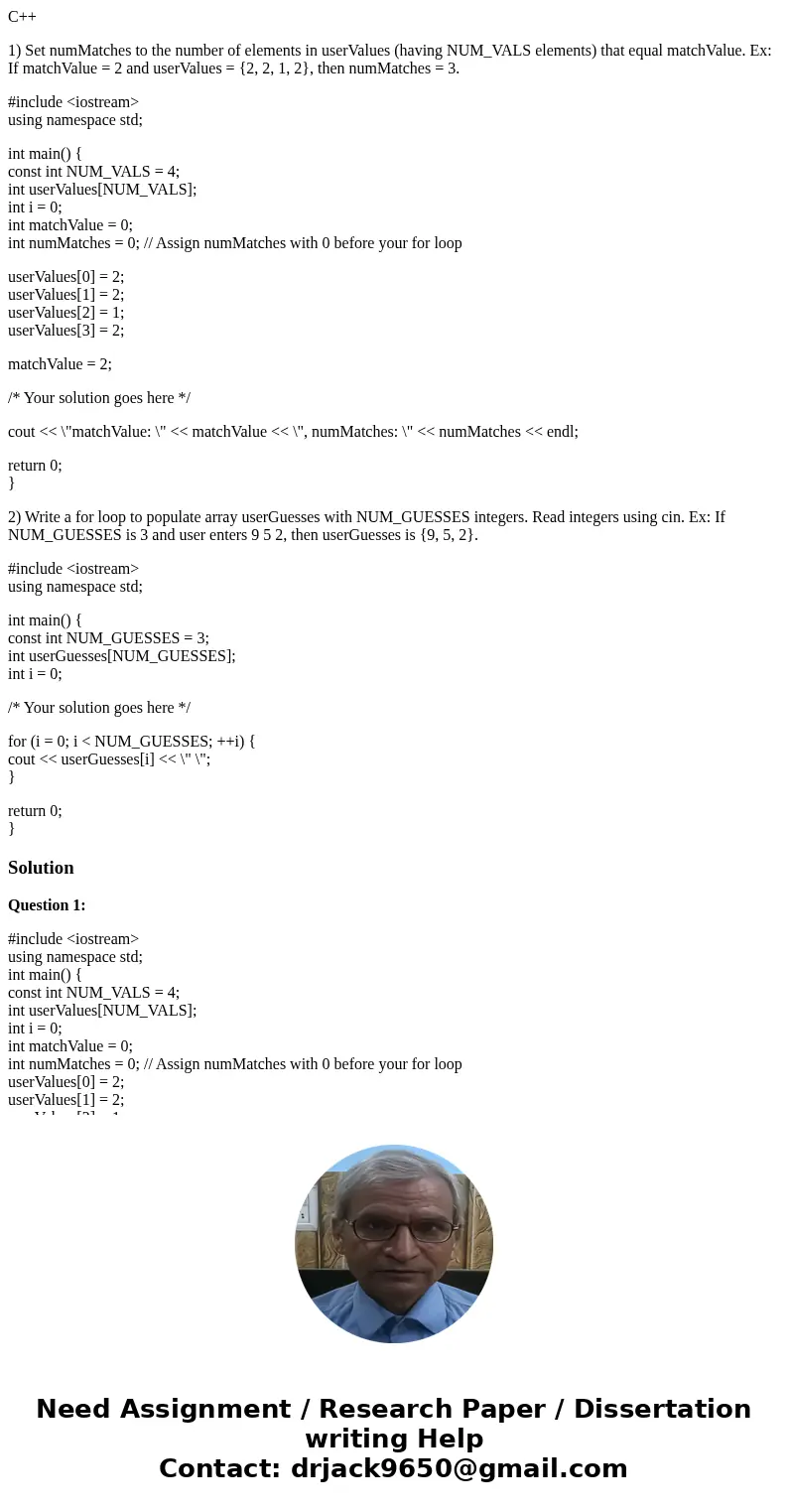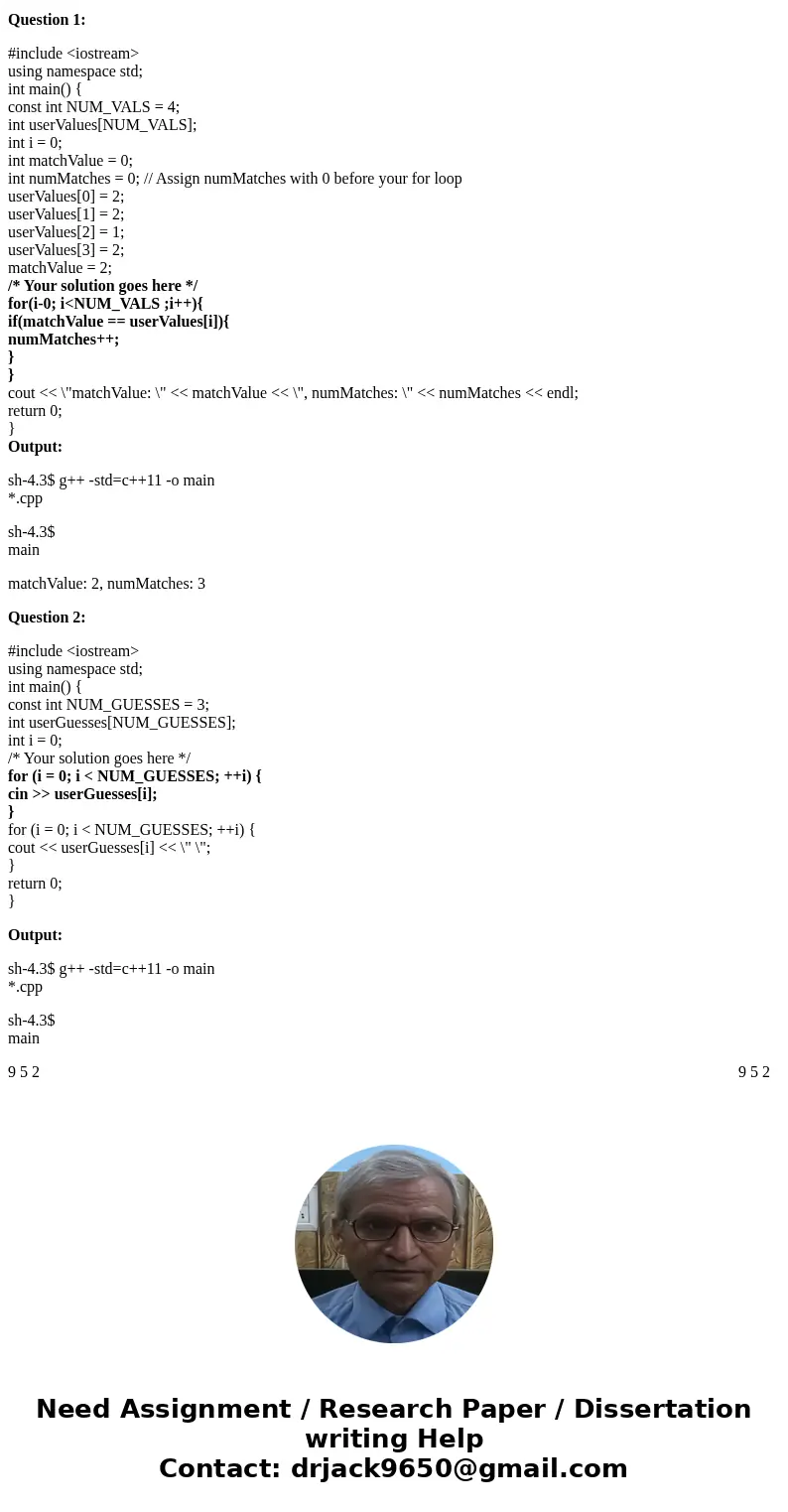C 1 Set numMatches to the number of elements in userValues h
C++
1) Set numMatches to the number of elements in userValues (having NUM_VALS elements) that equal matchValue. Ex: If matchValue = 2 and userValues = {2, 2, 1, 2}, then numMatches = 3.
#include <iostream>
using namespace std;
int main() {
const int NUM_VALS = 4;
int userValues[NUM_VALS];
int i = 0;
int matchValue = 0;
int numMatches = 0; // Assign numMatches with 0 before your for loop
userValues[0] = 2;
userValues[1] = 2;
userValues[2] = 1;
userValues[3] = 2;
matchValue = 2;
/* Your solution goes here */
cout << \"matchValue: \" << matchValue << \", numMatches: \" << numMatches << endl;
return 0;
}
2) Write a for loop to populate array userGuesses with NUM_GUESSES integers. Read integers using cin. Ex: If NUM_GUESSES is 3 and user enters 9 5 2, then userGuesses is {9, 5, 2}.
#include <iostream>
using namespace std;
int main() {
const int NUM_GUESSES = 3;
int userGuesses[NUM_GUESSES];
int i = 0;
/* Your solution goes here */
for (i = 0; i < NUM_GUESSES; ++i) {
cout << userGuesses[i] << \" \";
}
return 0;
}
Solution
Question 1:
#include <iostream>
using namespace std;
int main() {
const int NUM_VALS = 4;
int userValues[NUM_VALS];
int i = 0;
int matchValue = 0;
int numMatches = 0; // Assign numMatches with 0 before your for loop
userValues[0] = 2;
userValues[1] = 2;
userValues[2] = 1;
userValues[3] = 2;
matchValue = 2;
/* Your solution goes here */
for(i-0; i<NUM_VALS ;i++){
if(matchValue == userValues[i]){
numMatches++;
}
}
cout << \"matchValue: \" << matchValue << \", numMatches: \" << numMatches << endl;
return 0;
}
Output:
sh-4.3$ g++ -std=c++11 -o main *.cpp
sh-4.3$ main
matchValue: 2, numMatches: 3
Question 2:
#include <iostream>
using namespace std;
int main() {
const int NUM_GUESSES = 3;
int userGuesses[NUM_GUESSES];
int i = 0;
/* Your solution goes here */
for (i = 0; i < NUM_GUESSES; ++i) {
cin >> userGuesses[i];
}
for (i = 0; i < NUM_GUESSES; ++i) {
cout << userGuesses[i] << \" \";
}
return 0;
}
Output:
sh-4.3$ g++ -std=c++11 -o main *.cpp
sh-4.3$ main
9 5 2 9 5 2


 Homework Sourse
Homework Sourse